“It looks like you’ve sat in something nasty.”
The chuckles erupted as I hurried past the group of older men on their lunch break, my then colleagues.
I was 22 years old and my period had arrived unexpectedly.
The “nasty” stain had spread across the back of my pale pink trousers; eight years on and I still feel a hint of embarrassment.
From period poverty to the stigma attached, 1.8 billion people across the world menstruate and yet it is still shrouded in shame.
Scotland was the first country in the world to make period products free for all, meaning people from lower-income backgrounds are no longer forced to make do with wads of toilet paper.
While we’ve clearly identified the importance of accessibility, it is Spain leading the way in terms of attitudes in the workplace.
It could become the first country in Europe to allow workers to take menstrual leave.
The world of sport is also changing tack, but not before athletes disclosed their personal experiences of competing whilst menstruating.
Paula Radcliffe smashed her first world record whilst on her period, but not every competitor is so lucky.
Three-time Olympian and Commonwealth champion Eilish McColgan spoke out about the debilitating effect of her period earlier this year, and received an outpouring of support both from fellow athletes and people around the world.
“The only way to describe it is that my legs feel like they have been replaced with concrete blocks.
“And that a screwdriver is carving out the Taj Mahal around my ovaries,” she wrote in a column for BBC Sport.
A group of 50 elite female athletes have offered their backing as part of a ground-breaking campaign urging people to #SayPeriod and standardise the language around the female body.
And earlier this month, Wimbledon relaxed its all-white clothing policy, having faced criticism from Judy Murray and Billie Jean King.
A previous rule enforced in 2014 banned players from wearing non-white underwear.
UK football clubs including West Bromwich Albion and Manchester City have also done away with white shorts for female players.
Progress at last, but how do you solve years of shame, myth and miseducation?
I caught up with Hannah Miley MBE, our very own triple Olympic swimmer who of course trained in Inverurie during her younger years.
Having officially retired from the sport, Hannah has a new goal in sight.
“I really want to change the narrative and that was part of the message behind the campaign,” said Hannah, who offers workshops as part of her business based on understanding periods, hormonal cycles and training in sport.
“There was so much subliminal messaging when I was growing up, that periods must be kept secret.
“Even the advertising surrounding tampons was focused on how small and discreet they were.
“Heather Watson said periods are the last taboo in sport, and I think it is going to take time to break that stigma.
“For example, I did a piece with Sky Sports on the campaign. They had to turn the comments off on Instagram.
“Because this wasn’t football or male orientated, the comments weren’t great.
“This is what we are still up against.”
Hannah believes that by opening up education to both genders, it can foster better understanding for the next generation and even improvement in the workplace.
“When I was in school, boys were taken out of class and told it was something they didn’t need to know about,” she said.
“Actually it is, we need to dispel that myth because you will know someone who menstruates.
“‘You bleed’ just isn’t enough of an explanation.”
“If you’re not taught how to manage periods and how your body responds to it, how could you possibly know?” she said.
“This isn’t about making people feel uncomfortable, but the right education can help people understand and relate.
“It’s about giving the tools and creating an environment, be that on the pool deck or in the office.
“Those two environments are the same, because they are both an area of performance.”
When it comes to dealing with period pain, this can be linked with endometriosis or polycystic ovary syndrome.
But in Hannah’s experience, pain is simply dismissed as normal with the contraceptive pill offered as a solution to young people.
“One of the biggest myths is that period pain is normal, when nutrition, sleep and stress have a huge role to play,” said Hannah.
“This is 2022, and yet I think only 6% of studies are done on purely female-only participants in sports science.
“This is just the tip of the iceberg.”
A bloody shame
Bodyform was the first brand in the UK to feature sanitary pads stained with red liquid, rather than blue, in its adverts.
Blood in a horror movie? The more the better; menstrual blood, absolutely not.
Evidence shows that more than one in three women in the UK have experienced period shaming through bullying, isolation or “time of the month” jokes.
And over half of the people questioned in the ActionAid research said they hide sanitary products when carrying them to the toilet so as not to embarrass others.
While the average age of beginning your period is 12, it can range from as young as eight up to 17 years old.
The next generation is watching, let’s do better.
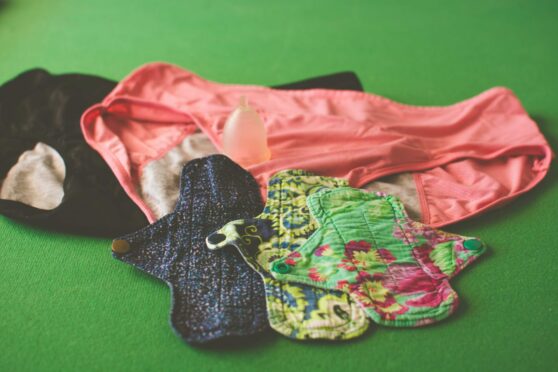
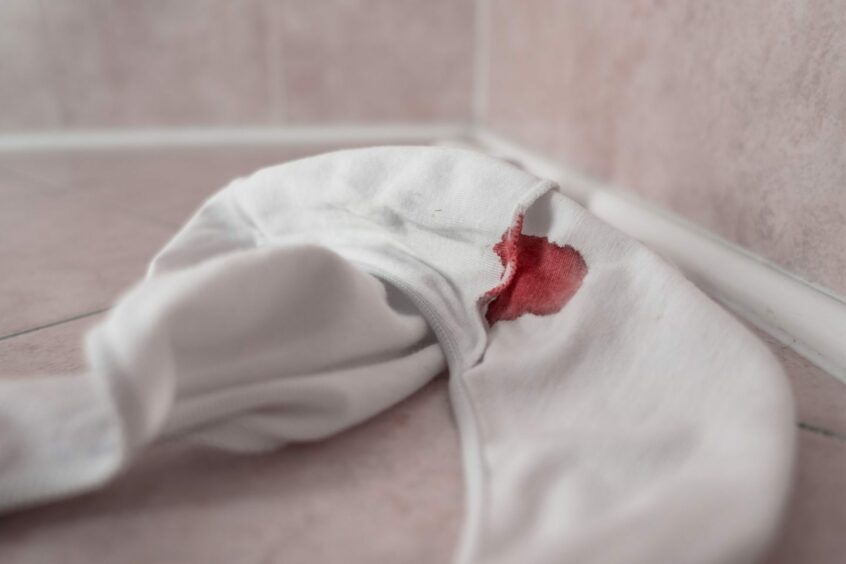


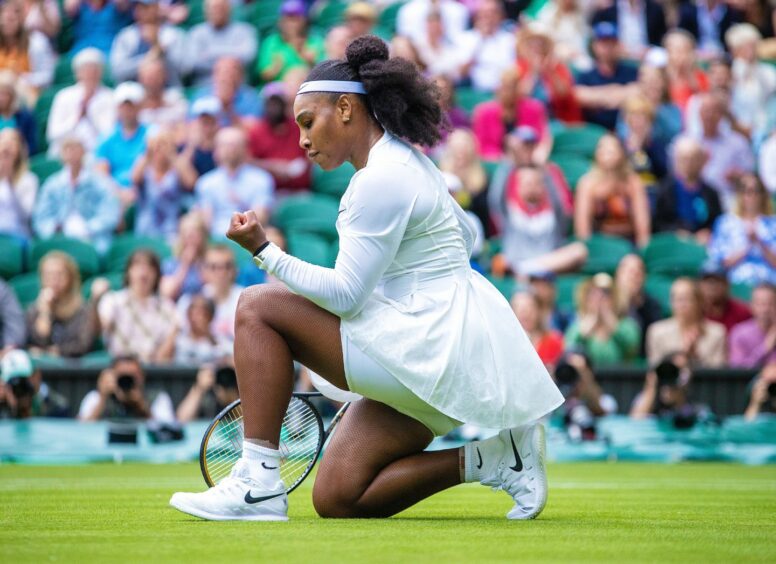

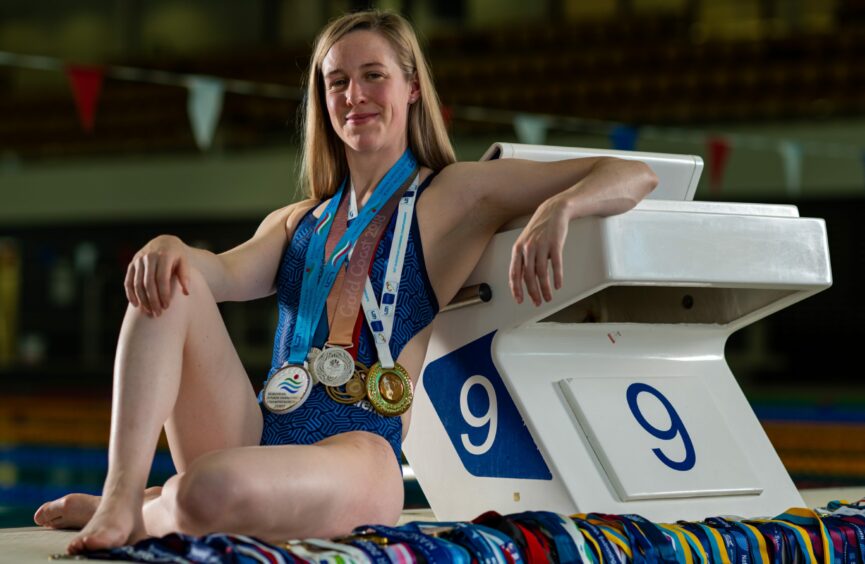
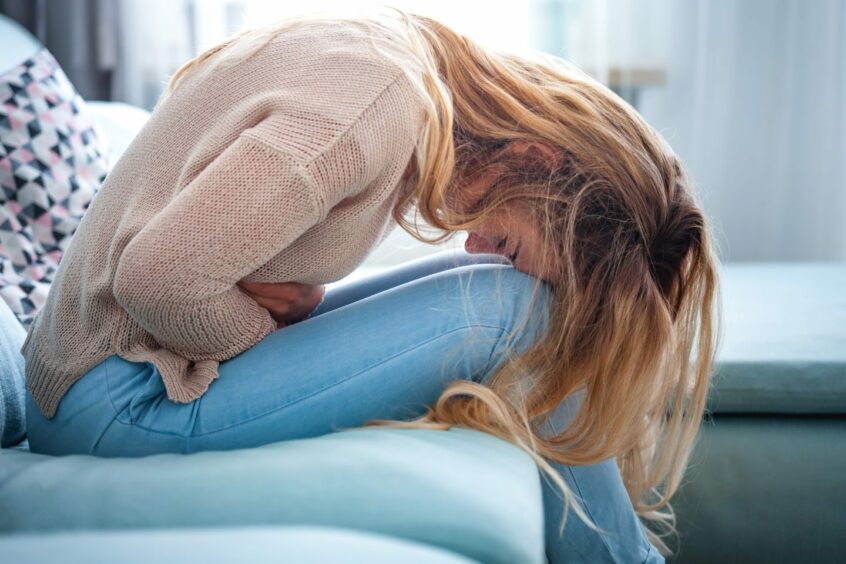
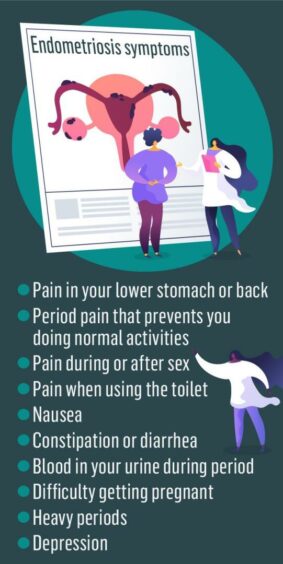
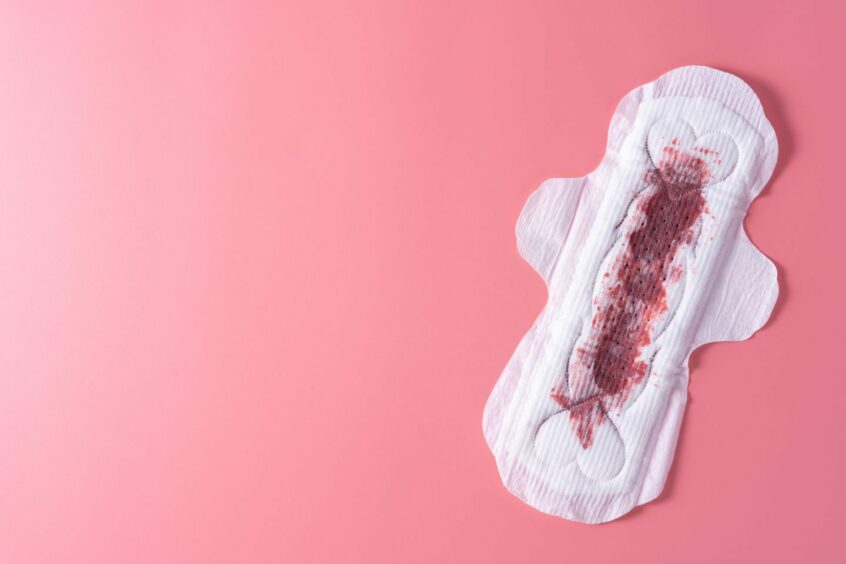
Conversation